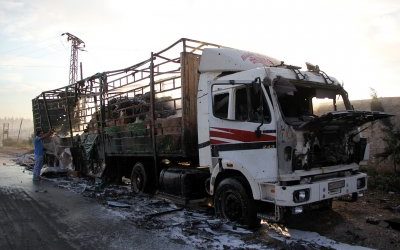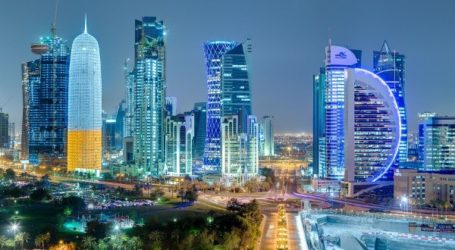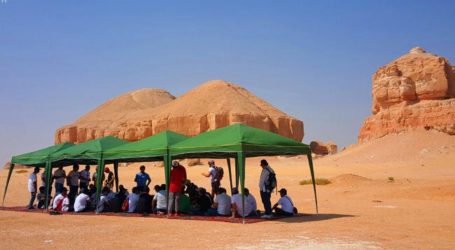EGYPT ON ALERT AHEAD OF JANUARY 25 ANNIVERSARY

Cairo, 20 Shafar 1435/22 January 2014 (MINA) – The Egyptian Interior Minister, Mohamed Ibrahim warned its citizens to step up security as the celebration of the third anniversary of the 25 January revolution.
The event will be another test for police that comes shortly after the challenge of securing the referendum.
Mohamed Ibrahim has cancelled all holidays for officers and personnel and raised the security alert after reports that the Brotherhood is allegedly planning to commit acts of violence and hold riots on that day, Egypt Independent media reported quoted by Mi’raj Islamic News Agency (MINA).
Police plan to secure important installations for 24 hours in coordination with the armed forces, including Tahrir Square, the Cabinet building, the Shura council, the Radio and Television building, the Central Bank, the Media Production City and power and water plants.
The Egyptian Revolution of 2011 also known as the Lotus Revolution, took place following a popular uprising that began on 25 January 2011. It was a diverse movement of demonstrations, marches, plaza occupations, riots, non-violent civil resistance, acts of civil disobedience and labor strikes.
Millions of protesters from a variety of socio-economic and religious backgrounds demanded the overthrow of the regime of Egyptian President Hosni Mubarak. There were also important Islamic, liberal, anti-capitalist, nationalist, and feminist currents of the revolution. Violent clashes between security forces and protesters resulted in at least 846 people killed and 100,000 injured.
Protesters also burned upwards of 90 police stations, though international media and politicians attempted to minimize that aspect of the revolt. Protests took place in Cairo, Alexandria, and in other cities in Egypt, following the Tunisian revolution that resulted in the overthrow of the long-time Tunisian president.
Grievances of Egyptian protesters were focused on legal and political issues including police brutality, state of emergency laws, lack of free elections and freedom of speech, corruption, and economic issues including high unemployment, food price inflation and low wages.
The primary demands from protesters were the end of the Hosni Mubarak regime, the end of emergency law, freedom, justice, a responsive non-military government and a say in the management of Egypt’s resources. Strikes by labour unions added to the pressure on government officials.
International reactions have varied with most Western states saying peaceful protests should continue but also expressing concern for the stability of the country and the region. The Egyptian revolution, along with Tunisian events, has influenced demonstrations in other Arab countries including Yemen, Bahrain, Jordan, Syria and Libya.
On 3 July 2013 Mohamed Morsi was deposed by a coup d’état led by the minister of defense General Abdel Fattah El-Sisi after mass opposition protests on 30 June 2013 . Massive popular demonstrations against military rule are continuing despite brutality of security forces who use live ammunition to suppress demonstrations. (T/P04 /E1)
Mi’raj Islamic News Agency ( MINA )








